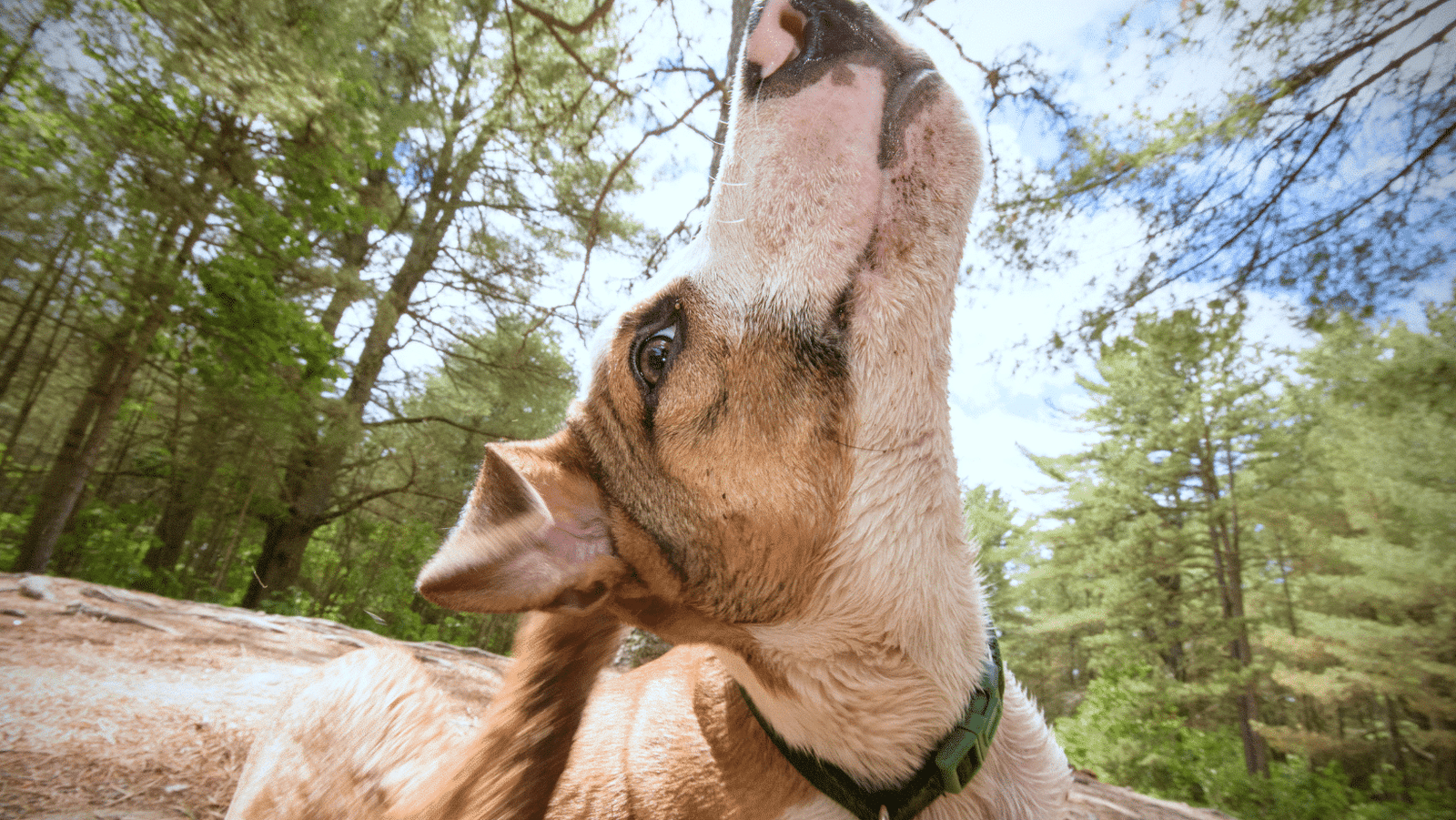Environmental allergies in dogs is when the immune system to ‘overreacts’ to a trigger. Many experts believe up to 20% of dogs suffer with allergies. If your dog has itchy and irritated skin, then keep reading.
Most allergies are from environmental factors but in some cases, it can be from food too. If your dog suffers most during the spring/summer months, then keep reading. If your dog suffers all year round, then stop. The blog below may be of benefit to your dog but the most important change you need to make is to their diet. You should book a Wellbeing Consultation with Nikita to review your dogs diet.
What Causes Allergies in Dogs?
The list of allergens that can trigger symptoms is very long. The main triggers are dust mites, pollen, grasses and mold. It is an endless list that you cannot limit completely from your dogs environment.
What are the Symptoms of Allergies in Dogs?
- Itchy skin
- Irritated Skin
- Recurrent skin and ear infections
- Excessive eye discharge
- Paw licking
- Hair loss
Environmental allergies in dogs tend to be at their worst during Spring and Summer months. Like humans.
How to Treat Allergies in Dogs
The majority of pet owners start their journey of allergies by going to their vet where they are prescribed Steroids, Apoquel, or Cytopoint. These drugs suppress the immune system to reduce the allergic reaction but in turn leave your dog vulnerable to other diseases.
Apoquel® Possible Side Effects
The most common side effects for Apoquel® include:
- Vomiting
- Diarrhea
- Anorexia
- Decreased energy (lethargy)
- Increased thirst
Often, these side effects are temporary and resolve on their own. If these side effects are severe or do not resolve, contact your veterinarian.
More serious side effects can also occur, including:
- Serious infections (including pneumonia, urinary tract infections, and skin infections)
- Demodicosis (a skin disease caused by Demodex mites)
- Skin masses, including cysts between the toes and skin cancer
- Cancer (new tumors or worsening of existing ones)
- Aggression
- Low white blood cell count
You and your veterinarian should monitor your dog for the development of infections, cancer, or skin changes. Contact your veterinarian if you see any of the following signs:
https://www.petmd.com/pet-medication/apoquel
- Trouble breathing
- Decreased energy or listlessness
- Any skin or haircoat changes
- New masses or changes to existing ones
- Fever
- Changes in urination (including accidents, frequency of urination, and bloody urine)
Honestly with a list that long I would avoid drugs such as Apoquel.
Natural Remedies for Allergies in Dogs
Quercetin – contains antihistamine compounds that can switch off the allergy response by reducing the production of histamine. It can also prevent itching. Foods that are high in quercetin include broccoli, apple, berries, bananas and parsley. Quercetin is also an ingredient in Four Leaf Rover Red Rover Supplement.

Four Leaf Rover – Red Rover – Organic Berry Blend
Four Leaf Rover – Red Rover – Organic Berry Blend
Red Rover is a simple blend of organic berries, whole-food probiotics, and astaxanthin.
The berries are rich in vitamins, 100% natural and free of harmful additives. The whole-food prebiot…
Fatty Acids – Omega 3 has been proven to fight inflammation of the skin. We recommend including Sprats, Sardines and Mackerel in your dogs diet. It will promote healthy skin and coat health for your dog.
Apple Cider Vinegar – a great way to wash pollen from your dogs paws after a walk. Simply dilute 1 part ACV to 10 parts water.
Hot Spots – That is one specific spot on the skin that is not healing quickly we recommend opting for Ecospot to treat it.
Probiotics – Yes these are important here, if the gut is not in tip top shape then the immune system cannot perform at it’s best. We recommend Four Leaf Rover Protect to rebalance the gut bacteria.
Every year our phone is hopping, our emails are popping, and our social media is buzzing with concerned owners as they enter ‘allergy’ season. Do not leave it late into the season to start these treatments, get ahead of it by starting early by building up your dogs immune system.
If you have any questions about environmental allergies in dogs please get in touch with us today via the Contact Form. We are here to help, and we will only ever recommend products that we would be happy for our own dogs to take.

